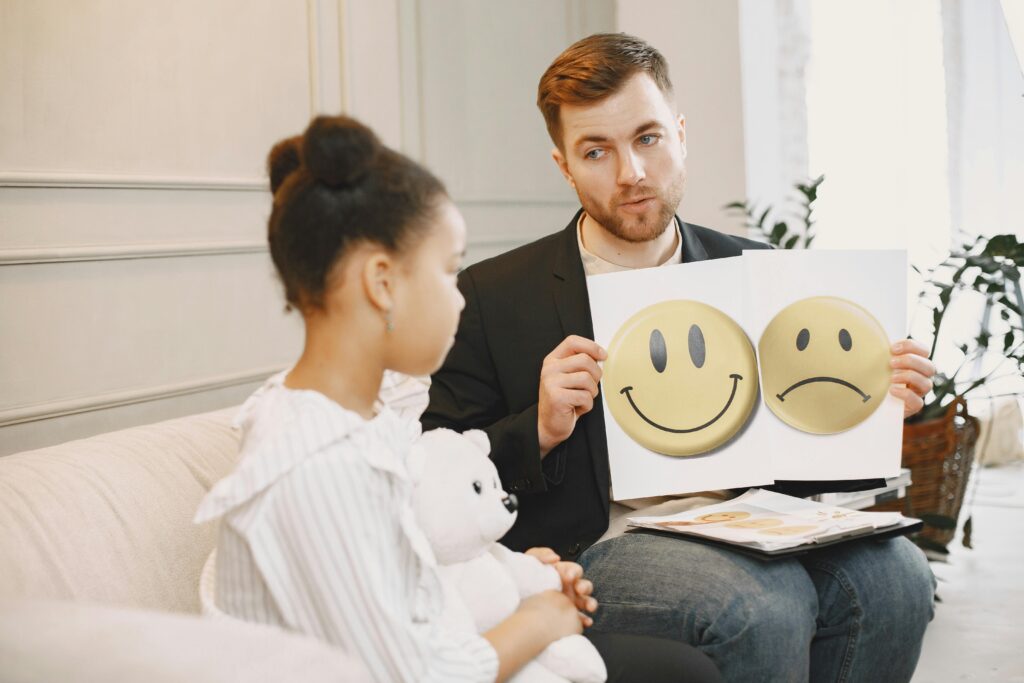Therapy can be a powerful tool for children dealing with emotional, behavioral, or mental health challenges. However, the role of a parent or caregiver plays a crucial role in supporting a child in therapy. Parents can help create a positive environment that encourages the child’s growth, understanding, and emotional healing. In this blog, we’ll explore how parents can support their child in therapy by being involved, providing encouragement, and creating an open, empathetic space at home.
The Role of Parental Support in Child Therapy
Parents are essential partners in the therapeutic process, and their involvement can significantly enhance the child’s progress. By offering a supportive and understanding environment, parents help children feel safe and validated, which encourages them to be open in therapy. Here are some ways that parents can provide the best support for their child during therapy:
1. Create an Open, Non-Judgmental Environment
One of the most important ways parents can support a child in therapy is by fostering an open and non-judgmental environment at home. Children need to feel that they can express themselves freely without fear of criticism or dismissal.
How it works:
Encourage your child to talk about their therapy sessions, but don’t pressure them to share details they are not ready to discuss. Be a good listener, validating their feelings and experiences without rushing to offer solutions. Your child needs to know that it’s okay to talk about difficult emotions, and they will not be judged or punished for doing so.
Example:
If your child mentions something they discussed in therapy, simply listen and offer support by saying something like, “I understand that must have been difficult,” or “It’s okay to feel that way.” Avoid the temptation to fix their problems immediately or offer unsolicited advice.
2. Be Consistent with Therapy Goals and Techniques
Therapists often provide children with coping strategies, behavioral techniques, or exercises to practice between sessions. It’s important for parents to be consistent in reinforcing these goals and techniques at home.
How it works:
Ask the therapist about specific strategies or exercises your child should be working on, and create a plan to practice them consistently. This continuity between the therapy room and home life helps the child feel supported and builds upon the progress made in therapy.
Example:
If your child is learning breathing exercises to manage anxiety, practice these exercises together at home, especially during stressful moments. This reinforces the therapy work and shows your child that you are committed to helping them.

3. Respect the Therapeutic Process and Maintain Boundaries
While parents play an essential role in supporting their child in therapy, it’s important to respect the boundaries of the therapeutic process. The therapist may need to have private sessions with the child to explore sensitive topics. Trusting the therapist’s expertise and respecting the space for the child’s personal growth is crucial.
How it works:
Support your child’s therapy by respecting the therapist’s decisions regarding privacy and boundaries. Understand that the therapist might not share everything discussed during sessions. This confidentiality is important for building trust with the child.
Example:
If your child is upset after a therapy session, be supportive but avoid pushing them for details. Instead, offer reassurance by saying, “It’s okay if you don’t want to talk about it right now. I’m here for you whenever you’re ready.”
How Parents Can Further Support Their Child’s Emotional Development
In addition to providing support during therapy, parents can take proactive steps to help their child’s emotional development outside of therapy:
- Establish routines: Consistent routines create a sense of stability and safety for children.
- Encourage positive self-talk: Help your child recognize and challenge negative thoughts by modeling positive thinking and self-compassion.
- Reinforce emotional regulation skills: Teach your child how to recognize and manage emotions, using the tools they learn in therapy.
The Importance of Supporting a Child in Therapy
Therapy can be a transformative experience for children. However, it’s important for parents to understand that their support plays a key role in the process. By being actively involved, maintaining a supportive environment, and respecting the therapeutic boundaries, parents can help their child gain the most from their therapy experience. With your help, your child can develop better emotional resilience and coping strategies to navigate life’s challenges.
If you’re wondering how best to support your child in therapy, don’t hesitate to speak with the therapist. Together, you can ensure that your child’s therapeutic journey is as effective and supportive as possible. Contact Mindhues today to get started.




